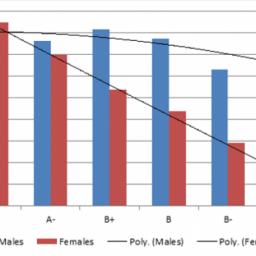
The
Guardian has an interesting review about
materialism and happiness in relation to the book by Graham Music entitled:
The Good Life: Wellbeing and the New Science of Altruism, Selfishness and Immorality . The thesis of the book appears to be that materialism and consumerism create unhappiness that can be exploited to perpetuate the cycle of getting ever more things. And, that this relationship may explain why inequalities get exacerbated by the wealthy with power.
Two quotes of note from the article and its sources:
- A study at Berkeley University, quoted by Music ... "The higher up the social-class ranking people are, the less pro-social, charitable and empathetically they behaved " consistently those who were less rich showed more empathy and more of a wish to help others.", and
- "Those with more materialistic values consistently have worse relationships, with more conflict," Music writes. "This is significant if the perceived shift towards more materialistic values in the west is accurate."
Can you make money by writing a book? Carter Phipps
shares his experiences in publishing his first book. He describes advances, self-publication, and book promotion - all very relevant information for someone looking to start writing their own masterpiece.
The automatic analysis of sentiment in text is fast changing the way we interpret and interact with words. On Twitter, for example, researchers have begun to gauge the mood of entire nations by analysing the emotional content of the tweets people generate.
In the same way, other researchers have started to measure the emotional temperature of novels by counting the density of words associated with the eight basic emotions of anticipation, anger, joy, fear, disgust, sadness, surprise and trust.
The next step,
obviously was to write an algorithm that measures that emotional temperature throughout full length novels, and
generate a musical soundtrack to accompany the text. Interesting research, or pointless? Time will tell, but energy and money is increasingly being used to judge moods and allow software or equipment to react accordingly. The true value of this research might not become apparent until sometime in the future, even if it is only used so your phone can sing you a soothing song after you receive a nasty email from your boss.

Catherine Rampell at
The Washington Post has
"A message to the nation's women: Stop trying to be straight-A students." In her analysis of others' findings, she writes of a discouragement gradient that pushes women out of harder college degrees, including economics and other STEM degrees. Men do not seem to have a similar discouragement gradient, so they stay in harder degree programs and ultimately earn more. Data suggests that women might also value high grades more than men do and sort themselves into fields where grading curves are more lenient.
"Maybe women just don't want to get things wrong," Goldin hypothesized. "They don't want to walk around being a B-minus student in something. They want to find something they can be an A student in. They want something where the professor will pat them on the back and say 'You're doing so well!'"
"Guys," she added, "don't seem to give two damns."
Why are women in college moving away from harder degrees?
 The Guardian has an interesting review about materialism and happiness in relation to the book by Graham Music entitled: The Good Life: Wellbeing and the New Science of Altruism, Selfishness and Immorality . The thesis of the book appears to be that materialism and consumerism create unhappiness that can be exploited to perpetuate the cycle of getting ever more things. And, that this relationship may explain why inequalities get exacerbated by the wealthy with power.
The Guardian has an interesting review about materialism and happiness in relation to the book by Graham Music entitled: The Good Life: Wellbeing and the New Science of Altruism, Selfishness and Immorality . The thesis of the book appears to be that materialism and consumerism create unhappiness that can be exploited to perpetuate the cycle of getting ever more things. And, that this relationship may explain why inequalities get exacerbated by the wealthy with power.